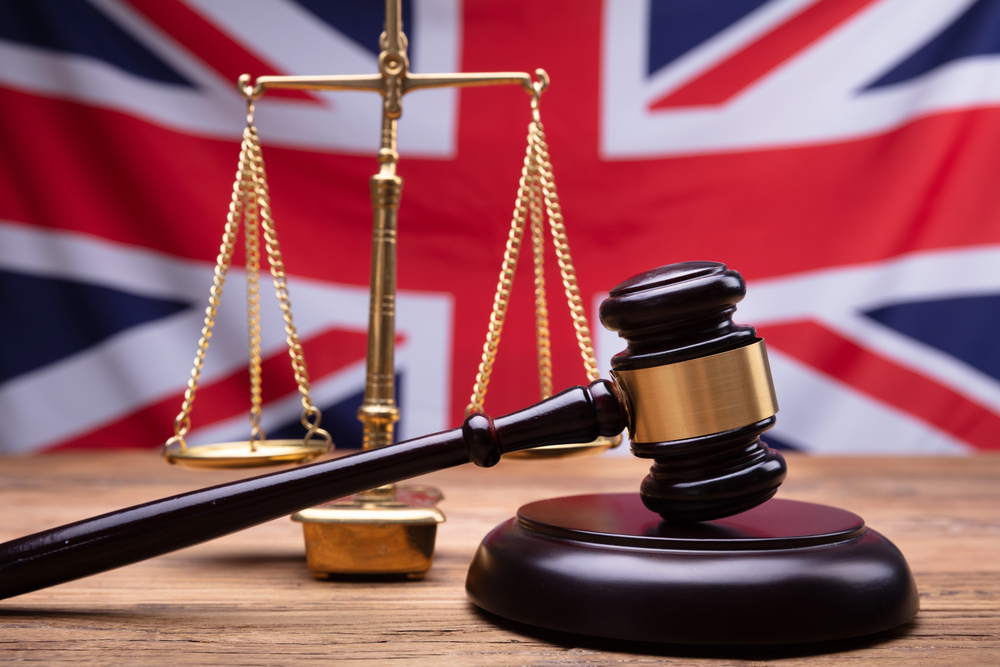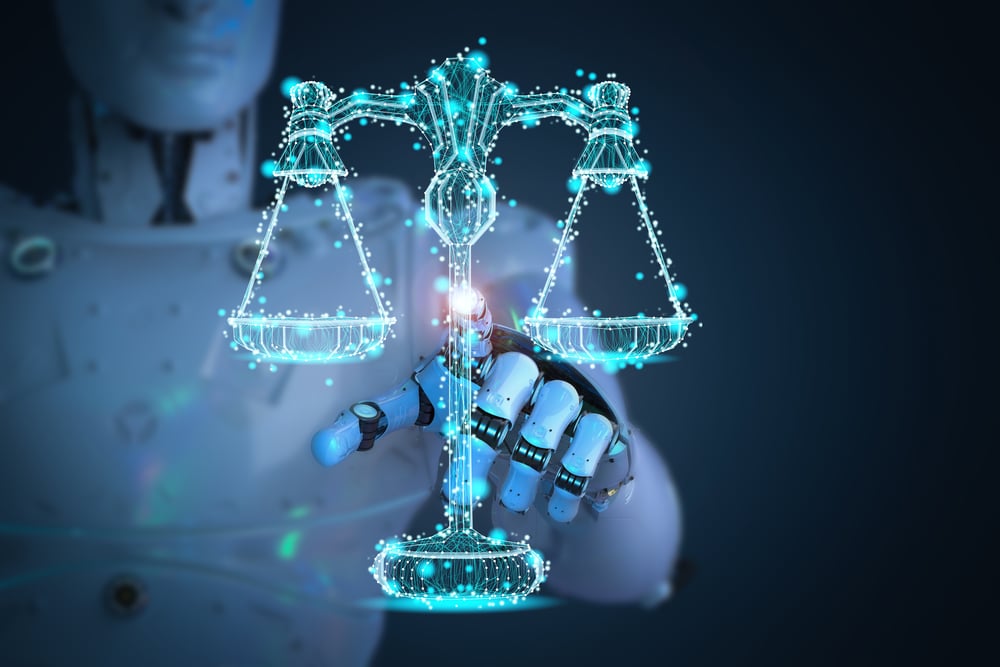
High Court rejects Wikipedia challenge to UK online safety rules
A High Court ruling has ended Wikipedia’s attempt to overturn part of the UK’s divisive new Online Safety Act, but the legal fight over its application may not be quite over. Judges dismissed the Wikimedia Foundation’s challenge to rules that could place the encyclopaedia under the law’s strictest category of regulation.
The organization behind Wikipedia says the framework risks forcing it to verify the identities of its volunteer editors, undermining both their privacy and the way the site operates. It argues that the model, in which anyone can contribute without registering personal details, is central to the platform’s reliability and breadth of coverage.

Harnessing generative AI to create a new breed of supercharged lawyers and law firms
Traditionally the legal sector has lagged behind other industries when it comes to embracing new technologies. However, generative AI is proving to be the exception to the rule. Its potential to transform the profession, driving lawyers and firms to unlock new levels of productivity and efficiency, is too great to be ignored.
Growing numbers of law firms are putting their money where their mouths are, with global spending on legal AI software tools at already over $1 billion and projected to increase by almost 20 percent (CAGR) every year across the rest of the decade, reaching an estimated $37bn by the end of 2024. There’s a huge societal and industry shift underway; lawyers and law firms must act now, or risk being left behind.

The EU's AI Act: Good regulation, bad regulation or somewhere in between?
History is littered with knee-jerk legislation, enacted with good intentions and often in response to genuine public fear. If you have ever traveled to the USA, you may be familiar with the I-94W Nonimmigrant Visa Waiver form that must be completed before entry. Among a number of questions asked, one is ‘Have you ever been or are you now involved in espionage or sabotage; or in terrorist activities -- Yes or No’. I’m sure many have often wondered whether those actually involved in such activities would be inclined to tick the ‘Yes’ box. This example effectively illustrates the challenges that all regulators and legislators should ask themselves at the outset, namely:
Are we doing this to address the problem or is it just a knee-jerk reaction to placate journalists and voters? (Remember that line from BBC political comedy Yes Minister -- “He’s suffering from Politician’s Logic. Something must be done, this is something, therefore we must do it.”)

The race to regulate AI: The next frontier for law and society
Artificial intelligence (AI) is set to be the next major technological advancement to dramatically impact modern society. From transforming the way we work, to increasing efficiency in outdated systems, the changes promised by AI have the potential to be utterly transformational. While this brings a huge range of opportunities, there are also some enormous challenges to overcome if humanity is to strike an effective balance between progress and risk.
History shows that society and the law do not always handle rapid innovation well. Take technologies such as the steam engine and automated loom, for instance, where progress was met with varying degrees of resistance and fear before the benefits were fully realized. In the case of AI, harnessing its potential while safeguarding against misuse means legislators must take a measured, risk-based approach to regulation that embraces change alongside effective safeguards.

Industry reacts to new SEC breach disclosure rules
On Wednesday the US Securities and Exchange Commission (SEC) approved new rules that require publicly traded companies to publicize details of a cyber attack within four days of identifying that it has a 'material' impact on their finances.
This marks a major shift in how data breaches are disclosed and industry figures have been quick to give their views on the effect the new rules will have.

Hacking and why it can be good for cybersecurity [Q&A]
Hacking tends to have something of a bad name, but there are many hackers who do good work, identifying flaws before they can be exploited in cyberattacks.
However, many of these people operate in the shadows for fear of being prosecuted for violating legislation. We talked to Laurie Mercer, director of sales engineering at security platform HackerOne, to discuss whether ethical hackers need to be more open about their activities in order to bring about change and how ethical hacking is making organizations safer.

The future of intellectual property
Over recent years, various emerging technologies have presented complex issues for intellectual property (IP) laws. The pace at which these technologies are advancing is only accelerating, and it seems fated that many recent innovations are on the verge of significantly impacting our lives.
The ramifications for IP could be substantial, and already, discussions are taking place regarding how novel technologies will influence the IP landscape. In some instances, the emergence of new media necessitates a response from IP laws to ascertain which existing rules remain relevant and ensure that current assets continue to receive effective protection. In other cases, the evolving ways assets are utilized demonstrate that some IP regulations are no longer appropriate, indicating a need for reform.

Automation: How law firms can reach new heights in recruitment and profitability
The legal profession is filled with a number of repeatable tasks that are rife for automation, such as estate planning, bankruptcy filing, IP filings, real estate transactions, and M&A filings. In fact, it’s estimated that nearly a quarter (23 percent) of a lawyer’s daily work could be automated.
The amount of time involved in doing manual tasks can put an immense amount of pressure on legal professionals. In a Gartner survey, 68 percent of corporate lawyers said they struggled to manage their workloads. And over half reported some degree of exhaustion.

The annual audit myth: Why law firms cannot treat cyber security as a tick box exercise
With cyber criminals deploying increasingly sophisticated methods of attack organizations must go the extra mile to protect their data and avoid costly financial and reputational damage. With new threats emerging each day, these risks cannot be taken lightly. This is particularly true for corporate legal teams and law firms who are prime targets for cyber attackers given the amount of sensitive client information that they hold.
According to IBM’s Cost of a Data Breach 2022, the average consolidated total cost of a data breach in the UK is £3.36 million, up from £2.37 million in 2015. Given the financial and reputational damage a data breach can cause, legal teams and law firms cannot treat cyber security as a tick box exercise. However, there is a tendency to fall into a key myth of cyber security: "We are doing fine as long as we pass our annual security audit."

Through a glass darkly: Nike sues Lululemon over mirror
In my bio below you'll see a picture of me sporting my new digital camouflage Lululemon Surge Warm Half-Zip that had arrived the night before writing this. Inside the box was a card trying to sell me something called Lululemon Mirror. The image on the card was very similar to what Lululemon has on their site (see image at the top).
My first reaction was "This looks like something Nike would make. I wonder if it'll claim to own the IP rights."

Washington cannot let Amazon water-down consumer protection legislation
The holiday season is a reminder that with more Americans than ever heading online to do their shopping, lawmakers must continue taking action to prevent consumers from falling prey to internet scammers. That’s why it was welcome news when Amazon recently reversed course on its longstanding opposition to bipartisan consumer protection legislation in Congress that would require third-party online marketplaces to verify independent sellers, with the goal of reducing counterfeits and stolen goods from these platforms.
But while Amazon’s public change of heart seemingly paves the way for the eventual passage of the bill, known as the INFORM Consumers Act, lawmakers must ensure that the retail giant and other tech companies do not work behind the scenes to water down the legislation and render it toothless. Counterfeits pose great harm to consumers and small third-party sellers, and Congress must pass strong, comprehensive enforcement mechanisms to adequately protect both groups.

Tweaking Windows 10 to remove features and lock down your privacy? You're violating Microsoft's copyrights
Although Windows 10 doesn’t spy on its users in the way it did when first launched, and people now have much greater control over their privacy settings, the truth is many users would prefer to tighten their control over the operating system further than Microsoft allows.
There are a number of great free third-party tools which let you boost your privacy and make various changes to the software, including removing annoying bundled software. That’s fine right? Not according to a lawsuit in which Microsoft says this is a breach of its license.

Avast under investigation for the sale of personal data to third-parties
It’s fair to say that Avast has been engaging in some rather sketchy behavior over the past couple of years. These include a privacy controversy with CCleaner back in 2018, and then a couple of weeks ago it was revealed that Avast Free Antivirus was sending browser history to marketers.
After attempting to defend its data gathering and sharing practices, Avast finally apologized and shut down its marketing analytics subsidiary Jumpshot with immediate effect. But it seems that isn’t the end of the matter as far as the Czech authorities are concerned.

New nuisance call act could help cut down on spammy telemarketing calls
Telemarketing calls often come through at the most inconvenient times, such as when a person has just sat down to enjoy a hot dinner or is trying to put a toddler to bed.
Although laws restricted how telemarketers operated, many found loopholes. For example, a New York law enacted in 2001 allowed people to opt-out of prerecorded robocalls, but not live telemarketer calls.

Is legal advice via AI a good idea?
Artificial intelligence is a controversial subject in any field -- including practicing the law. Even now, lawyers and law firms weigh the positives and negatives of using AI to dispense legal advice or automate basic tasks.
Here’s a look at both sides of the argument.
